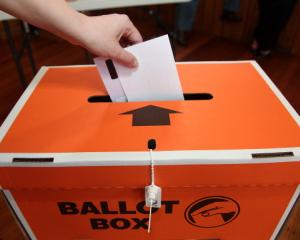The admiration for him perhaps peaked around the time of his death in January 2008, aged 88 But he was far too significant to slip from the limelight for long.
What made him so ''great'', not a word to be used lightly, was, as is well known, not just his feat becoming the first person to climb to the highest point on Earth but the way he gave back to Nepal and the Sherpa people. He traipsed the world - particularly the United States - raising money for work in the Himalayas.
With typical energy and drive he responded to needs with thoughtfulness and practicality. He was not one to tramp on local beliefs and culture. Rather, he reacted to requests. He helped in practical and no-nonsense ways.
While the fine series had its blemishes, one particular accomplishment was the way it humanised Sir Ed, some might argue even going too far in portraying his occasional irascibility. It is true, nevertheless, he had high standards, drove himself hard and expected high standards from others.
Recognising imperfections even in our heroes is helpful. It rounds their humanity and allows people to more easily accept themselves and others. For faults and weaknesses are in the essence of everyone.
This country's latest all-star hero, Richie McCaw, has a long way to go if he is to build a life of achievement and service, and Sir Edmund is without peer. McCaw, however, is only in his mid-30s and who knows what might unfold.
Both share that admired New Zealand trait of self-deprecation. New Zealanders do not approve of the show-off; better a quiet confidence and a driven determination, better humility and generosity.
It pays not to be too political, and on the whole Sir Edmund stayed out of the rough and tumble of that unforgiving sphere. He put his name, however, to the failed 1975 Citizens for Rowling campaign, where prominent New Zealanders put up their hands rejecting Robert Muldoon's ''divisive'' approach.
Sir Edmund on several occasions came close to losing his life in the mountains, and once when he narrowly avoided taking a flight in the United States which crashed.
How cruel it was, though, when his wife Louise and younger daughter Belinda died in a plane accident just outside Kathmandu, also in 1975. How cruel, too, that such a tragedy has only added to the legend of Sir Edmund.
Sir Edmund came to be known as one of the world's greatest adventurers of the 20th century. And, although he was willing to take risks, these were carefully calculated. No-one died on the expeditions he led.
He, with the Himalayan Trust, would go on to help fund and build hospitals, health clinics, schools and airfields. He also raised money for higher education for Sherpas and worked on reforestation programmes in Nepal. He returned to Nepal more than 120 times.
He was the first living New Zealander to be featured on a banknote and he towered head and shoulders above everyone else in this newspaper's millennium poll on the greatest New Zealander of the 20th century.
Nations need heroes, and New Zealand is fortunate to have an enduring one in Sir Edmund Hillary.











